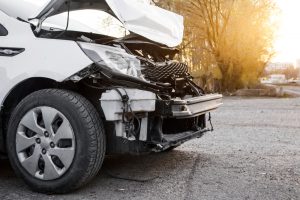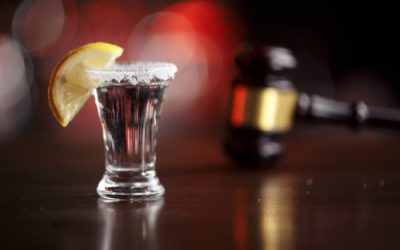
California is serious about preventing drunk driving accidents, especially fatalities. A blood alcohol content of as little as 0.01% is illegal for drivers under 21. If you find yourself or someone you care about in legal trouble because of a DUI accident that caused the death of another person under 21, immediately contact a Los Angeles DUI Attorney for help.
What Charges Can an Under 21-Year-Old Driver Face if Caught Drinking and Driving?
Younger drivers can face several charges for drinking and driving, even if they are not affected by the alcohol. California law does not allow for even a trace amount of alcohol in an under-21-year-old driver’s bloodstream. And penalties for the various charges can include a suspended driver’s license, an impounded vehicle, fines, jail time, and mandatory drug and alcohol education programs.
Charges can range from an infraction to a misdemeanor to a felony. The seriousness is determined by the driver’s blood alcohol content (BAC), whether drugs were involved, and if injuries were sustained.
Because of the zero-tolerance policy in California, the smallest amount of alcohol creates a charge for drivers under 21 years of age. This statute means that consequences are in place even if the driver is not impaired by the alcohol they ingested.
What Does Vehicle Code 23136 Mean for a Driver Under 21?
If a chemical test for alcohol results in an under-21 driver having a blood alcohol content of 0.01% or higher, they violate Vehicle Code (VC) 23136. The police officers will take the accused driver’s license at the scene. If the driver is unlicensed, they will have to wait another year before being eligible for a driver’s license.
According to VC 23136, California law has no discrepancy for only alcoholic beverages. Medicines containing alcohol, such as cough syrup, homeopathic medication with alcohol as their base, mouthwash, and ointments to numb the mouth, can cause blood alcohol levels to rise. Using appropriate care to avoid driving with even the smallest amount of alcohol in one’s system is crucial.
While VC 23136 is not considered a California crime. A driver charged with this will lose their driver’s license if they choose not to hire a Los Angeles DUI attorney to help them fight the suspension.
Acting quickly is essential. Thirty days after the VC 23136 charge, the driver’s license is automatically suspended. If they intend to fight the charge, they must request a DMV hearing ten days after their citation was issued.
What Does a Vehicle Code 23140 Violation Mean for a Driver Under 21?
This vehicle code makes it illegal for driver’s under 21 to drive with a blood alcohol content of 0.05% or higher. The violation of this code is not considered a crime. It is an infraction and does not require jail time.
- An under-21-year-old driver will lose their driver’s license if convicted of this offense.
- The accompanying fine is $100 but could be more if the driver has been charged with past DUIs.
- Those drivers over 18 are subject to attending alcohol education programs that can last three months or more.
- The driver’s vehicle may be impounded for a minimum of five days if they have already been convicted of a DUI, if their blood alcohol content is greater than 0.01%, or if they refuse to take the chemical test to measure their BAC.
Though young drivers may not be affected by the alcohol consumed, they may still face the consequences of simply having alcohol in their systems.
Can an Under-21-Year-Old Driver Be Charged with an Adult DUI?
A driver under 21 can be charged with a standard adult DUI according to Vehicle Code 23152. If the driver’s ability to operate a motor vehicle is impaired, his blood alcohol content is 0.08% or higher. A standard DUI brings a more serious misdemeanor charge than an infraction like lesser charges.
The driver’s license will be suspended if it is a first DUI, like the other charges. There will be a three to five-year summary probation. The driver can be charged with fines up to $1000. The driver may also be required to participate in an alcohol education program for up to 9 months. The accused may also face up to six months of incarceration in a county jail.
What if a Passenger Who Is Under 21 Is Killed?
When a tragedy like this takes place, the driver faces dire consequences. According to California Penal Code 191.5, it is considered gross vehicular manslaughter. The driver was not attempting to kill his passenger but did so because he was intoxicated and acting with gross negligence.
The proximate result of the driver’s unlawful behavior resulted in their passenger’s death. The “grossly negligent” act is separate from the driving under the influence charge. These behaviors could be driving at unsafe speeds, swerving in and out of traffic recklessly, or ignoring traffic lights and signs.
This charge is a felony and carries much stiffer penalties than an infraction or a misdemeanor. A driver in California can only be charged with one of the above penalties. But, in the case of a fatality, they will be charged with a DUI offense and gross vehicular manslaughter. The grossly negligent act must be another unlawful act that resulted in the passenger’s death.
What Consequences Does an Under 21-Year-Old Driver Face After a Car Crash Resulting in a Fatality?
If convicted of gross vehicular manslaughter, the driver will lose his driving privileges. And can face jail or a state prison sentence of 4, 6, or 10 years. These consequences are separate from the charge that accompanies the gross vehicular manslaughter charge.
In a California court, gross negligence is considered more extreme than a careless lack of judgment. The driver is charged with gross vehicular manslaughter if the prosecution can show that they behaved very differently from the behavior of other careful citizens who would act in the same situation.
Reach Out to an Experienced Lawyer Today
For help navigating these serious charges, contact a Los Angeles DUI Attorney. Their experience and knowledge of California law are vital in fighting such a severe charge. After studying your case, they will understand how to mount a solid defense to preserve your freedom.







